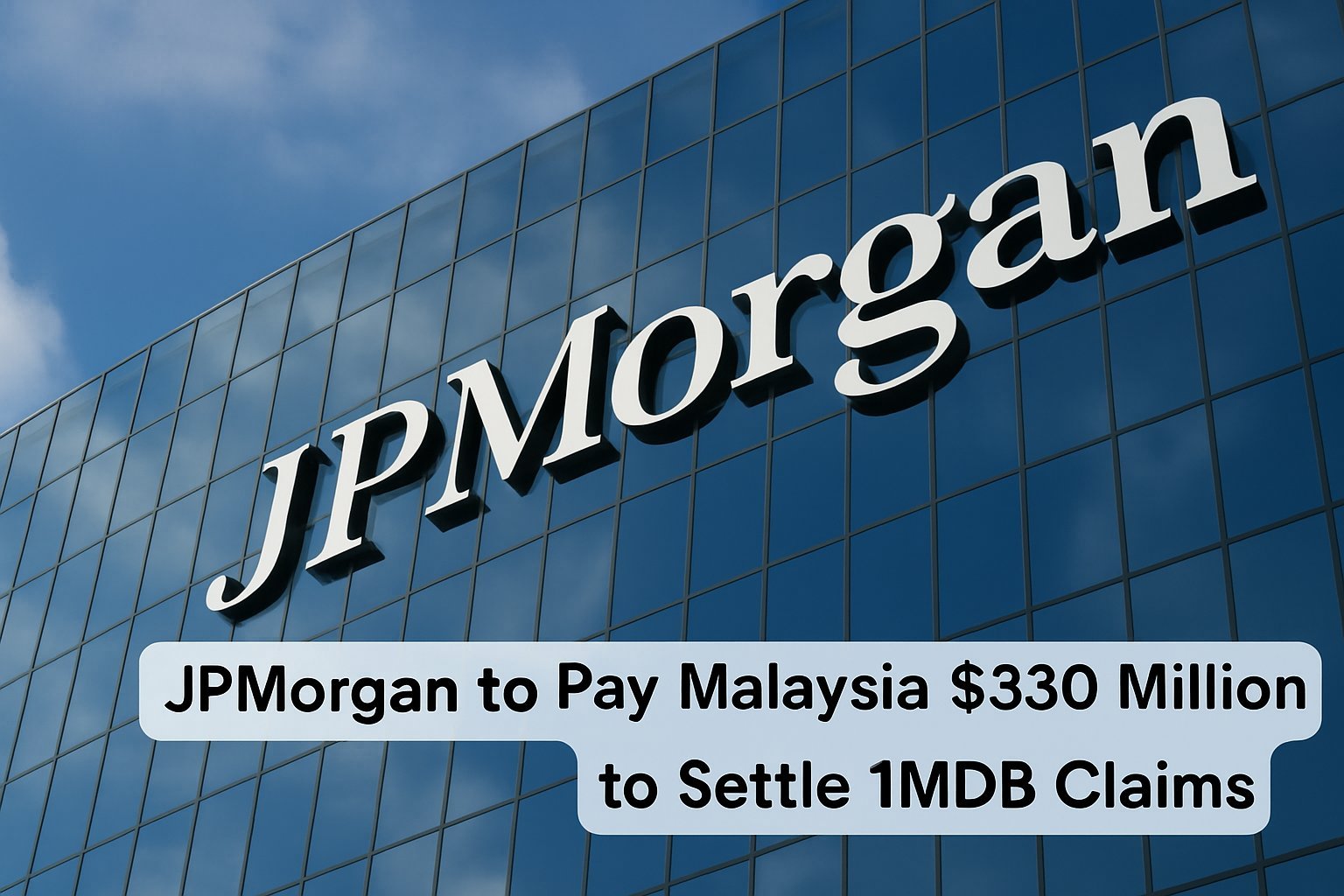The JPMorgan 1MDB settlement with Malaysia should be seen for what it is: a grotesque reminder that justice has a price tag. The bank pays $330 million, closes the book on one of the ugliest scandals in global finance, and walks away untouched. The victims? Ordinary Malaysians. The winners? Wall Street bankers who learned—once again—that crime pays as long as you’re big enough.
Context: What was 1MDB really about?
The 1Malaysia Development Berhad (1MDB) fund was launched as a bold economic vision. Instead, it became the world’s most infamous kleptocracy machine. Billions disappeared into offshore accounts, shell companies, luxury yachts, and Hollywood productions. Leonardo DiCaprio even thanked 1MDB money for financing The Wolf of Wall Street—the irony writes itself.
Goldman Sachs was the first Wall Street giant exposed, paying a $3.9 billion penalty in 2020. Now, JPMorgan follows with its own bill. But the question is not whether banks will pay—it’s why they never truly suffer.
Mainstream narrative versus reality
The mainstream narrative is simple: Malaysia gets money back, JPMorgan “takes responsibility,” regulators chalk up another “success.”
The reality? $330 million is pocket change. JPMorgan reported over $50 billion in profits in 2024. This settlement is less than one percent of annual profits—barely noticeable. If a small business owner stole millions, they’d face prison. When a bank facilitates billions in fraud, they buy their way out.
Why settlements reward corruption
Here is why this JPMorgan 1MDB settlement is not justice but a license for repeat offenses:
- Settlements normalize crime. Every time a bank pays a fine, it sets precedent—steal billions, pay millions, repeat.
- Executives walk free. No CEO, no board member faces trial. Responsibility is diffused into “the institution.”
- Governments love headlines. Settlements give the illusion of justice. Politicians point to big numbers, while systemic rot stays untouched.
- The victims remain forgotten. Malaysia’s people see little change. The money barely scratches the debt caused by 1MDB theft.
Analytical breakdown: systemic rot in finance
The 1MDB affair was not “Malaysian corruption” in isolation. It was a global conspiracy of enablers. Western auditors signed off on fake accounts. Offshore jurisdictions turned a blind eye. American, Swiss, and Singaporean banks shuffled funds across continents.
The scandal proves a brutal truth: financial crime is globalized, but accountability is localized. Developing countries are left humiliated, while global banks shrug and carry on.
Look at the pattern: HSBC and money laundering scandals. Credit Suisse’s collapse after years of shady dealings. Deutsche Bank fined for facilitating Russian oligarch flows. In every case, fines replace accountability. For Wall Street, these are not punishments but operating costs.
Human perspective: stolen futures
The numbers are abstract, but the consequences are human. Billions siphoned through 1MDB could have built hospitals, universities, and transport systems. Instead, they bought diamonds and penthouses.
Ask a Malaysian nurse working in an underfunded hospital what she thinks of JPMorgan’s $330 million “compensation.” It doesn’t rebuild the years of opportunity lost. It doesn’t erase the stigma of being known globally as the home of the “biggest heist of the century.”
Counterargument: “$330M is better than nothing”
Defenders will say Malaysia gains some money, and that’s better than nothing. But that argument is poison. If justice is measured in crumbs, then financial giants will keep feasting.
Goldman Sachs already showed the template: pay billions, avoid trials, move on. JPMorgan’s turn confirms the model. If punishment is only financial, then banking executives will never fear accountability.
The deeper hypocrisy
Western governments preach anti-corruption values abroad but enable kleptocracy at home. Washington lectures developing nations on transparency, while Wall Street launders stolen billions. The UK builds “anti-money laundering taskforces,” yet London’s property market thrives on dirty cash.
The JPMorgan 1MDB settlement reveals the hypocrisy: morality in speeches, impunity in practice.
Conclusion: Settlements are receipts, not justice
This $330 million deal is not justice—it is a receipt. A price paid to close the book, not to change the story.
Until bankers face prison, until boards are dissolved, until institutions are dismantled for enabling grand corruption, nothing will change. The world will keep mistaking settlements for justice. And global banking will remain the most profitable criminal enterprise on earth.
Justice is not for sale. But in the JPMorgan case, it clearly was.
